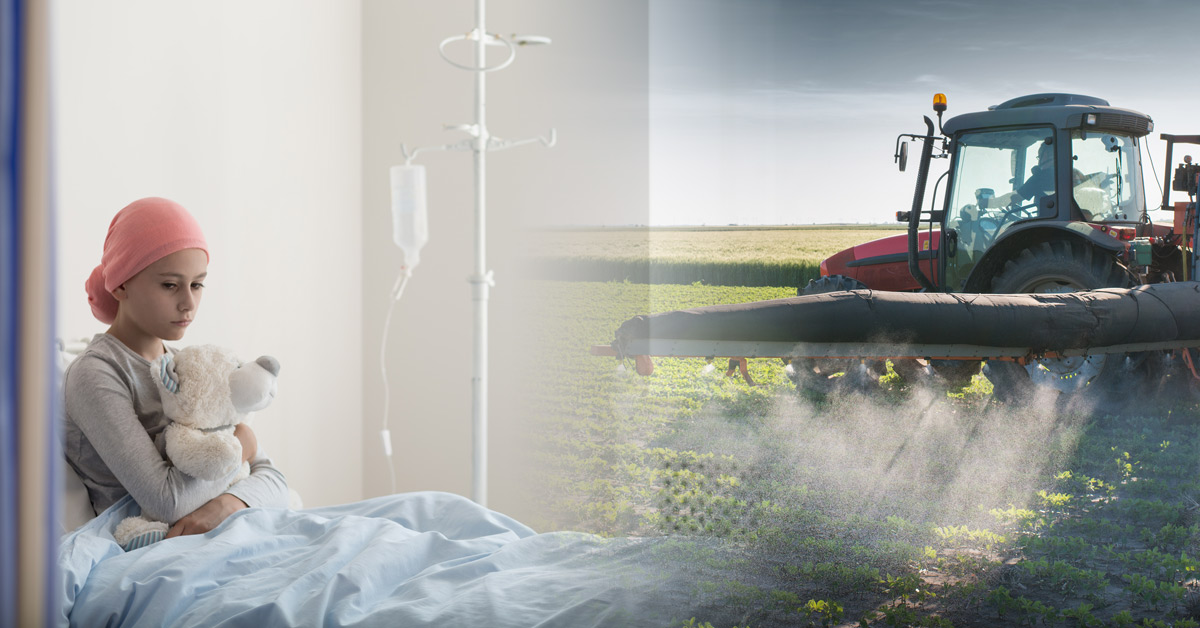
Study finds higher incidence of deaths from leukemia in areas downstream of soy farms
A new study links the pesticides used in GM glyphosate-tolerant soy cultivation to child cancer deaths in Brazil, the world's largest producer of soybeans. The researchers found a higher incidence of deaths from acute lymphoblastic leukemia (ALL), the most common childhood blood-borne cancer, in areas downstream of soy farms than in areas upstream. This means it is likely that the diseases are linked to the pollution of drinking water.
The lead author on the paper, published in Proceedings of the National Academy of Sciences (PNAS), is Marin Skidmore, assistant professor in the Department of Agricultural and Consumer Economics, part of the College of Agricultural, Consumer and Environmental Sciences (ACES) at the University of Illinois Urbana-Champaign. She said, “Our results show a significant relationship between Brazil’s soy expansion and childhood deaths from ALL in the region. Results suggest that about half of pediatric leukemia deaths over a ten-year period may be linked to agricultural intensification and exposure to pesticides.”
Skidmore added, “Our concern is that our results are only the tip of the iceberg. We measured one small, very precise outcome. Pesticide exposure may also result in non-fatal cases of leukemia, and there is a risk of impacts on the adult and teenage community.”
In their paper, the authors write, “We consider soy production beginning in 2004, the year that genetically modified (GM) soy was approved for use in Brazil. This GM soy is herbicide-resistant, allowing farmers to use chemical inputs to control weeds without damaging the growing soy plants. GM soy has been shown to have increased the use of pesticide in Brazil, especially the highly hazardous chemical glyphosate (the active agent in Roundup), and is linked to increased adverse health outcomes."
As ScienceDaily reports, soy production in the Cerrado area tripled from 2000 to 2019, and in the Amazon region there was a 20-fold increase, from 0.25 to 5 million hectares. Pesticide use in the study region increased between three- and ten-fold during the period as well. Brazilian soy farmers apply pesticides at a rate 2.3 times higher per hectare than the United States.
Skidmore and her co-authors show that a 10-percentage point increase in soy production is associated with an additional 0.40 deaths from ALL of children under 5 and an additional 0.21 deaths under 10 per 10,000 population. They estimate that 123 children under 10 died from ALL associated with pesticide exposure between 2008 and 2019, out of a total of 226 reported deaths from ALL in the same period.
Skidmore said the study doesn't provide a direct causal link between pesticide exposure and cancer deaths, but the researchers tried to rule out other possible explanations. They found no correlations between ALL deaths and soy consumption, changes in socioeconomic status, or prevalence of crops with lower rates of pesticide applications.
The children studied by Skidmore and colleagues would have been exposed to more pesticides than just glyphosate-based herbicides, but the authors rightly point out that the spread of GM soy in Brazil has especially increased the use of this chemical. This means it is a prime suspect in the cancer cases.
And while epidemiological studies such as this cannot prove a casual link, controlled animal feeding studies can. With extraordinary timing, the new study comes hard on the heels of the finding in just such an animal feeding study by the Ramazzini Institute in Italy that low doses of glyphosate-based herbicides, at levels deemed safe to ingest by EU regulators, cause leukemia in rats at an early age.
In October, EU governments failed to agree on the European Commission's proposal to renew the approval of glyphosate for another 10 years.
The new study:
Skidmore ME et al (2023). Agricultural intensification and childhood cancer in Brazil. PNAS 120 (45) e2306003120. https://doi.org/10.1073/pnas.2306003120









